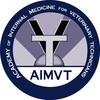- Have a contact, either by phone or in clinic to bounce questions off of, have the contact review your application, and just in general have support. This was an amazing help to me during my application. --Colleen
- Start early. I also kept a notebook of the cases that I worked on and listed the skills that I performed for each (made for easy reference for deciding which cases to write up). --Jennifer
- Carry note cards during your shift. One side gets patient info (a sticker where I work). Write the diagnosis, procedures, outcome, etc. on the other side. Go through the cards every 2-3 days and filter out what you don't need. --Joanna
- Don't procrastinate - pay close attention to deadlines and dedicate time to work on the application at least two months before it is due. --Kristen
- For the case logs: I made a list of all of the disease processes that we saw on a frequent basis (DKA, ITP, Addison's, Cushings. etc). Then, I actively strived to be assigned to work on those cases until I had at least one of each type to add to my log. If I worked on additional cases of a particular disease process (i.e perhaps in a year I cared for 10 DKA patients), I kept track of those as well. But made sure that I had at least one of all diseases on my original list. I also tried to be involved in cases that came in that we didn't see on a frequent basis (i.e FCE, myxedema coma,etc). To make my final log I picked the best case of each type from my "frequently seen" list and added in the "infrequently seen" cases. I had to duplicate a few disease processes to complete my log. So, I went through the cases not previously selected and chose cases that might be the same disease but were somehow different from the first case of that type that I had included (e.g. perhaps I had chosen a blocked cat, my second case would be a hyperkalemic blocked cat). My definition of the "best case" was the one were I had the biggest impact on that patient's care either by my technical skills or knowledge (preferably both). The other techs that I worked with knew what I was doing. Eventually, it became almost a game for them. They started seeking me out as cases came in to make sure I didn't miss anything on my list.
- For the case studies: Selecting the right case was key for me. There were several "cool", interesting, challenging cases that I wanted to write about but they were too complicated to describe in the number of pages we were allowed. In some cases, I had enough space to relay the facts (presenting complaint, diagnostics, treatment, etc.) but had no space left to provide the required analysis (why we treated the patient the way we did; did we see the results we expected/why not; what impact did I have on the patient's care, diagnosis, treatment, etc). So, I had to select cases that perhaps were not the most exciting cases that I had participated in over the past year but were ones that I could adequately describe and analyze in the space allowed. --Lana
- Keep up on the case logs and don't hesitate to reapply if you don't pass! --Shawna
- Start early and be consistent. Give the skills list to the doctor who is going to sign it off early! Give out the personal recommendation forms early and check back in with the doctors every once in a while to remind them. I kept a copy of the skills list and every time I got a case that matched a skill, I put a hash mark on the skills list to make sure I was covering all of my skills. I copied records as I went along too (treatment sheets, anesthesia logs, lab work results, doctors reports, and etc.) I kept everything together in an accordion file that had dividers so I could keep cases in order. Get volunteers to read the case reports, checking not only for content but grammar and flow. Bribes worked well for me – primarily chocolate. --Brenda
